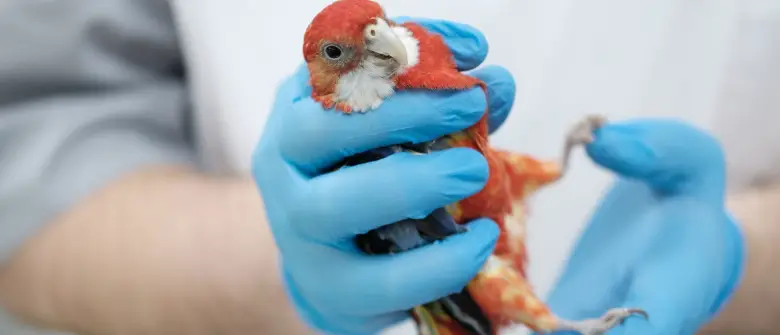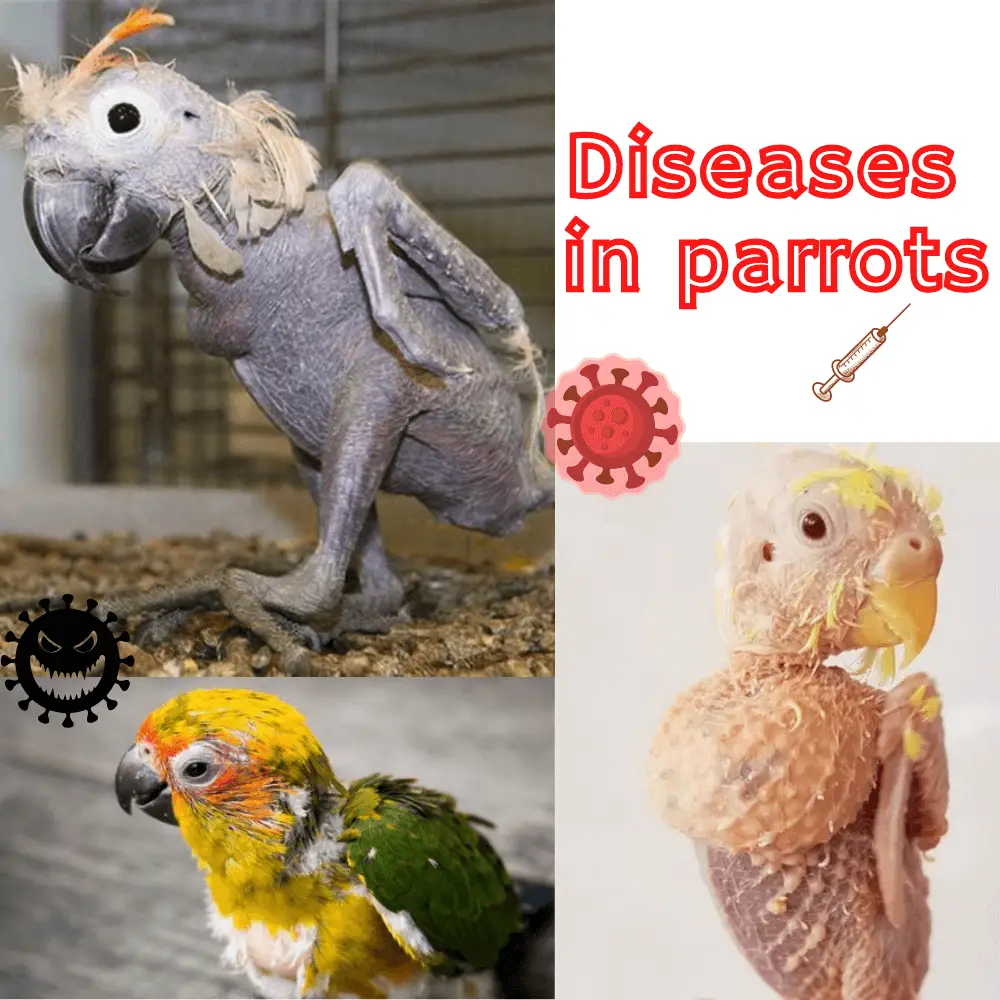Parrot disease
Colibacillosis
 Symptoms and diseases of pet Parrot
Symptoms and diseases of pet Parrot
In birds, as in many other animals, colibacillosis is a disease caused by the bacterium Escherichia coli.
The latter is not systematically pathogenic. It can therefore be found in the respiratory and digestive systems of the parakeet without triggering any symptoms.
But when it does, the consequences can be very serious: greenish diarrhea, edema in the head (its volume increases), significant mortality at hatching …
Budgie diseases
SOURCE: Ruby Begonia
Coccidiosis
Coccidiosis is a parasitic disease. It is caused by coccidia that develops in the intestine of the bird. It is caused by insufficient hygiene or poor quality, spoiled food.
This disease gives rise to diarrhea with the presence of blood, weight loss, and the presence of drooling at the corner of the beak. If the bird is not treated, it can die within a few days.
Psittacosis
A contagious disease, psittacosis is not transmitted only to the congeners of the sick bird; it is also a zoonosis, causing symptoms in humans (signs of influenza in particular).
In the contaminated bird, irregular breathing, tremors, loss of appetite, fever, or fluorescent green excrement are observed.
Respiratory disorders
The airways of our birds are very fragile, especially since our living environment and that we share with them can be extremely different from their natural state.
The smoke from cooking or smoking, for example, is particularly inconvenient. The humidity and air currents are also very harmful.
These are factors that trigger respiratory illnesses or worsen infections, such as rhinitis, sinusitis, tracheitis, pneumonia, etc.
The symptoms commonly observed are an increase in respiratory rate, coughing, and sneezing. or a runny nose.
Frostbite
Cold winds and negative temperatures can cause frostbite in insufficiently sheltered birds. The ends of the legs tend to swell and turn whitish. It is a problem that commonly affects parakeets and lovebirds.
Anemia
In birds, anemia can be caused by inadequate feeding. It can, in fact, be the consequence of deficiencies, but also of dangerous foods such as garlic or onion. These promote the destruction of red blood cells.
The parasites (red mites, mites …) are also responsible for anemia, which results in the coloration paler the skin, the legs, and the beak, and by a maigrissement bird affected.
Scabies in pets
The itch or the acarbose reached the shanks and beaks of the bird, which overlap progressively from a grayish crust. The person in charge is Chemidocoptes mutants, a mite that takes advantage of the lack of hygiene to get tough. If the animal is not treated quickly, it can die.
Parrot egg candling
It can happen that an egg gets stuck at the entrance of the cesspool and the mother cannot lay it. In this case, it is strongly recommended to take the bird to the veterinarian, rather than trying to promote the evacuation of the blocked egg yourself by massaging the abdomen.
Parrot Plucking feathers
Pecking is a frequently observed behavior in birds stressed, commonly disturbed, frightened, or lack activity. A food deficiency can also be the cause of the plucking of feathers, which the bird can inflict on itself as on its congeners.

